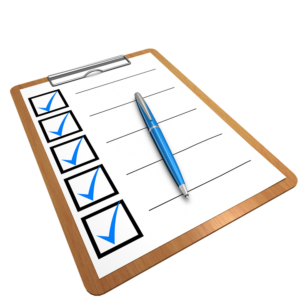Pros and Cons of Interning During a Semester
Published on January 10, 2017, at 4:09 p.m.
by Kennedy Studdard.
Internship — a powerful word that can strike fear into some of the most brave, most outstanding students and student leaders you’ll ever know. And if you meet someone who is unfazed by the word “internship,” it’s almost as if you’ve met a real-life PR wizard, because at some point, everyone will be worried about their job situation.
No, seriously, it seems rare to meet someone who hasn’t been stressed over an application or an interview during the internship hunt. Specifically looking at public relations majors at The University of Alabama (because I am one), we all hope to market ourselves as the best qualified individual for the position we’re applying for by always practicing our “P’s” and “Q’s” and always trying to go the extra mile. But when an organization has an application pool of hundreds, the position grows more competitive, and the nerves set in.
Employers these days demand and almost expect public relations students to have an internship or some relevant work experience before hiring them full time. But as students continue to venture out into the “real world” and try their hand in “adulting,” I wonder if we truly weigh the pros and cons of an internship beyond making money.
As a PR student who juggled both school and an internship, I wanted to weigh the pros and cons from my own experience.
Pro: Having an internship helped me learn what I was interested in
“Don’t knock it until you try it” is the old saying that probably all students have heard at least once in their lives. Whether you heard it when someone wanted you to try a new food for the first time or when you were asked to go shark cage diving with an adventurous friend who did it once on a study abroad trip, every employer, professional and academic adviser will agree that this saying is true when discussing internships.
As students, we learn best through experiences, and employers want valuable, experienced students. You’ll never know if writing press releases at a small boutique internship or monitoring social media messages for various sports teams is where you fit best.
I didn’t know a lot about electricity, how power is generated or the power company before interning at Alabama Power, but my internship allowed me the opportunity to know more about topics that normally wouldn’t have sparked my interest otherwise (no pun intended). It took being at the company to know whether or not I could see myself in this field long term, and it let me explore that sector while learning about various industries and departments in my classes or through my involvement in different campus organizations.
Con: Less free time and more responsibility
With taking on an internship as a full-time student, there were days where I had to exchange social experiences for sleep, or determine if I’d rather take a lunch break between classes or go into work to complete a few tasks.
This “con” really isn’t a con because it prepared me for the working world. Of course, there won’t be lectures to attend or tests to take, but regardless, the responsibility level will be the same, if not greater. Having an internship while in school can help you prepare to juggle life inside and outside the workplace and prevent any doubts you may have about your ability to balance it all.
Pro: Additional items for my résumé and portfolio
Through my internship, I was able to write articles for the internal website, have a small blurb  featured in a local west Alabama city newspaper, and create a story about food trucks for an external website owned by Alabama Power. I attribute all of these opportunities to having this communications internship and working with my supervisor to make these pieces come to life.
featured in a local west Alabama city newspaper, and create a story about food trucks for an external website owned by Alabama Power. I attribute all of these opportunities to having this communications internship and working with my supervisor to make these pieces come to life.
But the most important thing about this experience is that I’m able to actually practice what skills I’m learning in college and in my classes, and I have the proof now to show others my skill set and what I can offer.
Con: Feeling lucky if I got five hours of sleep
Because I was balancing both school and an internship, some days were a full 12 hours, and I felt lucky if I didn’t have homework and projects due the next day. But I know a few less hours of sleep then would pay off in the long run because of the experience I gained.
I would encourage anyone looking to intern during a semester to really evaluate their daily habits and how well they function under pressure, quick deadlines, whether or not they like caffeine and how well they can operate without the seven to nine hours of recommended sleep.
This path isn’t for everybody, but for those looking to strengthen their résumé or learn about the industry, they could use a semester-long internship to examine how they can balance work, school life.
Pro: My knowledge of the company was extremely tailored
Unlike large public relations agencies where you have a chance to work on several clients, my internship allowed me to focus on the messaging and voice of Alabama Power. The benefit — I believe I competently understood what the company is, what it stands for and who the messaging is meant to reach. Having such a narrow focus allowed me to stay in one frame of mind when creating content.
A small drawback to this pro was that my network of contacts was slightly limited. Sure, I know a lot more people who work at Alabama Power now, but because I interned with one sector and one client, my reach and knowledge were specific and tailored to Alabama Power and Southern Company.
Con: It was paid (a total pro), but I watched my paycheck grow smaller
As the semester picked up, I had to put my internship on the back burner so I could succeed in school. Fewer hours at work meant a smaller paycheck, and as someone who’s learning the value of money, it’s hard to manage your money when you don’t have a steady income. But the positive side to this experience is that if you’re working at a paid internship, you’ll learn what kind of person you are financially and methods to handling your finances.
But what’s the rush to get us students in the work field, especially when it seems as though internships are becoming more competitive and scarce by the minute?
As students, we’re asked to understand and choose tools that will prepare us for a job, what job environments we’d like to work in (and how often we’re willing to work in them), and what’s next after the internship ends. Additionally, we have to explain, sometimes justify, why we are pursuing public relations to “outsiders” in different fields of study.
CNN explained how both the intern and the employers can benefit from student internships. And what about unpaid internships? Are they worth it? The Huffington Post says “nay,” but I’ve heard from several extremely successful practitioners that if you have to take on an unpaid internship to advance your career because options are limited, make the most out of your experience while you can. Plus, it won’t last forever, and what you’ll learn from that opportunity will help push you closer to your future endeavors.
Being a student intern is truly a balancing act, but with the right support of people, peers and professionals, the weight of textbooks and intern deadlines will eventually equal out.






